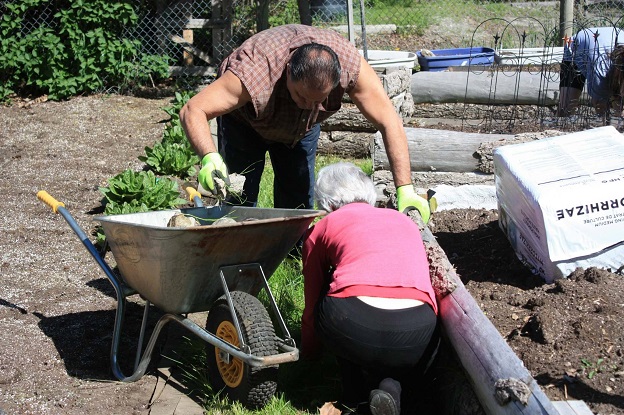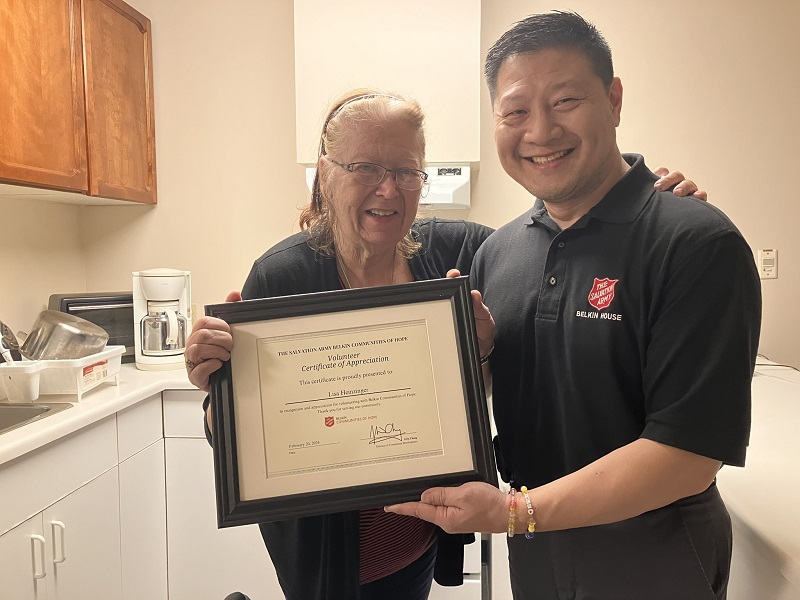Community Garden Helps Boost Food Security in Penticton

Since 2013, The Salvation Army’s community garden in Penticton, B.C., has been a place where social connections are established, healthy eating is celebrated and food security is boosted.
“The community garden works in conjunction with the Penticton food bank, which is operated by The Salvation Army, to create community and long-term solutions to food poverty,” says Program Coordinator, Sierra Hartmann.
Land and water for the garden were donated by a local medical research centre. Thirty raised beds and four in-ground beds are maintained by volunteers who offer gardening instruction, mentorship and support throughout the growing season.
“Our aim is to educate low-income individuals and families on how to grow and care for their own produce such as tomato plants, corn, lettuce and basil,” says Hartmann. “By doing this, they eat healthier, save money on their grocery bills and boost their self-sufficiency.”
“The garden is more than a place to grow food.”
Those who participate in the community garden enjoy the socialization and appreciate the access to fresh fruits and vegetables. With one in eight households being food insecure, the garden helps struggling families to put healthy food on the table.
“Participants say they leave their worries at home when they come to the garden,” says Hartmann. “For some, gardening gets them out of the house. For others, it is a safe place to share their challenges. In any case, gardening is improving the emotional and physical health of people in our community.”
“Participants say they leave their worries at home when they come to the garden.”
In addition to learning about the various techniques involved in planting and how to preserve the harvest garden, participants come together at The Salvation Army’s community kitchen to learn new cooking/preserving methods, household budgeting and how to plan and create a nutritious, affordable meal.
“Many of our food bank clients are unemployed, low-income and struggling to make ends meet,” says Hartmann. “When they gather together to grow fruits and vegetables they feel a sense of purpose. The garden is more than a place to grow food.”



